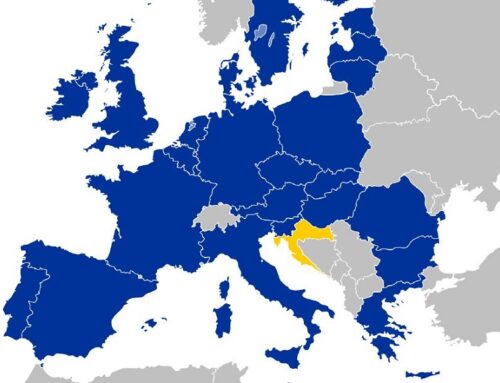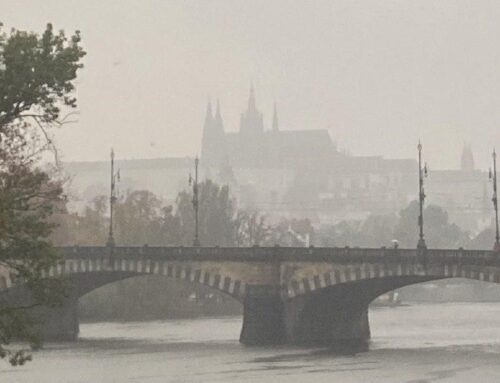The necessity of environmental protection became increasingly important in 21st century. Considering that environmental problems are a global challenge, the regulations were enacted on both national and transnational levels with an aim to reduce environmental damages. Special attention has been given to air pollution, as one of the greatest causes of environmental harm. World Health Organisation estimates that annually over four million people die as a direct consequence of ambient air pollution, causing heart and pulmonary diseases, malignancy, and respiratory distress and infections. The researches further show that 90% of people are exposed to air that is significantly polluted, with the highest level of pollutants being found in low-income and middle-income countries [1]. Western Balkans is one of the regions that is subjected to the problem of poor air quality and high levels of pollutants. As a result of such exposure, it is estimated that, on yearly basis, 3,300 people die prematurely in Bosnia and Herzegovina, 1,600 in North Macedonia, and 760 in Kosovo [2]. In order to minimise the threat, Western Balkans needs to adopt an effective strategy that would address this problem.
Power usage, vehicles, and industry are just some of the key sources of air pollution. Energy expert Srđan Kukolj cites outdated coal power plants, petrol and diesel cars, and high polluting household heating systems as primary contributors to poor air quality in Western Balkans [3]. It is predominantly urban areas that suffer the transport-related emissions and rural areas that suffer negative outcomes of the coal and wood burnings. Industrial zones are exposed to high levels of pollutants from industrial processes, primarily caused by combustion of fossil fuels. AirVisual, a platform that tracks air pollution, is often shown to rank capitals of Serbia, North Macedonia, and Bosnia-Herzegovina within the Top 10 most polluted major cities in the world. Moreover, according to data gathered by World Health Organisation, North Macedonia’s Tetovo was the most polluted city in 2017, with Tuzla (BiH) coming in second place [4]. It is not uncommon for air quality to be labelled as “very unhealthy” or even “hazardous”, especially during winter. As it can be observed, the situation became rather alarming in past few years and demanded the attention of the regional authorities.
In past few decades, European Union became increasingly focused on improving the air quality and minimising the risks that are elevated by air pollution. Series of directives and strategies were issued in order to combat this problem, one of the most notable one being Ambient Air Quality Directive from 2008. Furthermore, EU legislation requires Member States to collect data on air quality on their territories and develop programmes to address sources of pollutions and ensure the plan is being implemented. All gathered data are to be available to the public and reported to the European Commission [5]. EU has also developed a transport policy that has an objective to reduce vehicle pollution by 60% by 2050 [6]. While EU spent decades on attempting to combat environmental damages; in past few years, Western Balkans also begun to take steps towards cleaner air.
Western Balkans has witnessed notable modernisation of public transport, with countries starting to introduce electric buses or other eco-friendly options. In an attempt to lower the levels of pollution in Sarajevo, the cantonal government temporarily imposed alternative driving days for cars, based on the licence plate numbers. The public transport was also made free as the part of measures to improve air quality [7]. North Macedonia has established a national emissions inventory, reporting primary sources of pollution, and has also developed air quality monitoring network [8]. They have also started using drones in order to identify greatest polluters and issue appropriate sanctions [9]. Governments have started to urge people to observe WHO’s recommendations and limit their stay outside, restrain from doing any physical activity outdoors, and wear masks. Air quality monitoring stations are also being installed across the region. Legislation and regulations are present, but the implementation is rather poor and the countries are lacking additional mechanisms to properly address the problem. What further hinders the progress is regional poverty which prevents citizens from using eco-friendly options. This primarily refers to current heating systems and coal as an energy source that, despite its severely negative effects on the environment, remain the most popular choice due to its low cost. As far as International and non-governmental sector are concerned, they continue to advise citizens to switch to more environmental-friendly heating systems, limit the use of cars and opt out for public transport or non-emitting transportation.
Earth’s climate and its ecosystems are directly affected by the air quality. There is an ongoing pressure on countries to develop efficient policies to combat air pollution and oversee its proper implementation, with the ultimate goal being protection of both the environment and global health. However, the clean air strategies and implementations of legislative frameworks evidently need strengthening in the region. Due to the complex and global nature of the problem, the environmental threats need to be addressed systematically. Laws of the European Union need to be more carefully observed, with the EU accession potentially serving as an incentive for Western Balkans to abide by the issued regulations. There are numerous directives, adopted by regional authorities, that are aligned with EU instructions. While many are not yet fully adopted, the progress is evidently being made. Kosovo has aligned with Ambient Air Quality Directive; Serbia has drafted Law on Air Protection and industrial pollution regulations are in early stages; Montenegro is partially aligned with the EU acquis on industrial pollution, risk management, and chemicals; and North Macedonia’s alignments are making significant progress with climate chance regulations also being in early stages.
Bosnia and Herzegovina is behind the progress of its neighbouring states considering its multi-level complex governing system, but legislation exists on both entity and cantonal levels [10]. International involvement in combating this global problem is also present: European Bank for Reconstruction and Development is investing millions of euros in regional fight for cleaner air, contributing to household adaptations that contribute to lowering of pollutant levels, such as improved isolation or solar panels [11]. European Commission is also aware of the problematic environmental situation in the Western Balkans and is ready to work with the regional authorities towards combating this global threat. It is evident that the commitment and dedication towards healthier environment exist. However, taking into account regional living standards, as well as economic and political situation, it must be noted that this fight is not an easy one. Western Balkans are still to have effective implementation of Ambient Air Quality Directive, develop integrated environmental monitored systems that will provide comprehensive analyses of air quality and sources of pollution, and work towards modifying its energy sector in order to produce more eco-friendly option.
References:
[1] https://www.who.int/health-topics/air-pollution#tab=tab_2
[2] World Bank (2020), Regional Note on Air Quality Management in the Western Balkans: Bosnia and Herzegovina, Kosovo, and North Macedonia
[3] https://www.aa.com.tr/en/environment/western-balkans-air-pollution-hotspot-in-europe/1736292
[4] UNICEF, Informative report on air quality in Bosnia and Herzegovina https://www.unicef.org/bih/media/1206/file/Informativni%20list%20o%20kvaliteti%20zraka%20u%20Bosni%20i%20Hercegovini.pdf
[5]https://ec.europa.eu/environment/air/quality
[6] World Bank (2020), Regional Note on Air Quality Management in the Western Balkans: Bosnia and Herzegovina, Kosovo, and North Macedonia
[7] https://apnews.com/article/66ef680237c6458a8721aeefa3617ba3
[8] World Bank (2019), Air Pollution Management in North Macedonia
[9] https://balkaninsight.com/2018/01/10/macedonia-hires-drones-to-fight-pollution-01-10-2018
[10] Banja M. et al (2020), Status of air polltants and greenhouse gases in the Western Balkans
[11] https://ebrdgeff.com/making-a-difference-to-air-quality-in-the-western-balkans/




